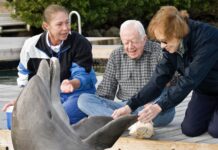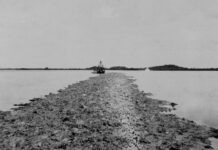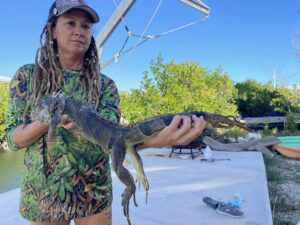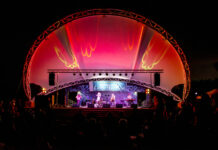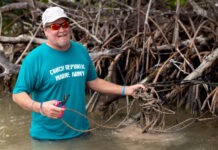
Arkansas backcountry roads surrounded by waterfalls, swimming holes, sparkling streams – though it sounds like a beautiful bike ride, this high country road less traveled is not for the faint of heart. The hilly and hollow Arkansas High Country Race is a self-supported 1,037-mile cycling contest with punishing backroad sweetness. The half gravel, half pavement event not only gives its riders breathtaking mountain views and access to bustling cities, historic sites and shady rivers, but more than 80,000 combined feet of elevation change will also take plenty of breath away.
Grassy Key resident Marcin Sykut is one of 19 racers who entered the world-class offroad event on Oct. 7. Of the 19, only 13 finished the race. Sykut was able to complete this challenge in nine days, nine hours and 46 minutes – an impeccable time considering he is 61 years old.
“There are no age brackets for this race,” Sykut said. “The winner was five days ahead of me and the last finisher was two days behind. There are both men and women who compete in this race. We all just want to finish and accept the challenge that we completed something great.”
The competitors have to be wise when choosing what they will bring with them. Too little and they will get dehydrated or hungry; too much and the heavy load can weigh on how fast they go.
“Those guys who do it in four days, they don’t carry much with them,” said Sykut. “They carry a couple of power bars and two bottles of water and that’s it. They know better because they live over there. They know where to stop, where to buy things and they are so fast. They know when they’re going to be at the gas station and where they can buy water, Gatorade or whatever.
“I’m twice as slow as them because I’m sleeping at night. A lot of them don’t sleep much, so it’s a balance between how much you carry, how much you can suffer without water or food and how much sleep you need.”
As a self-supported race, the riders who enter the contest through the flowing hills of Arkansas have high expectations. Some of these include policing themselves to ride the course completely solo. There are no chase vans, no food, gear or water caches, and riders are not allowed to “phone a friend” to bring them anything. The riders are required to post 12 selfies while on route to prove that they made it to mandatory locations, and a GPS tracker is mounted on each bike.
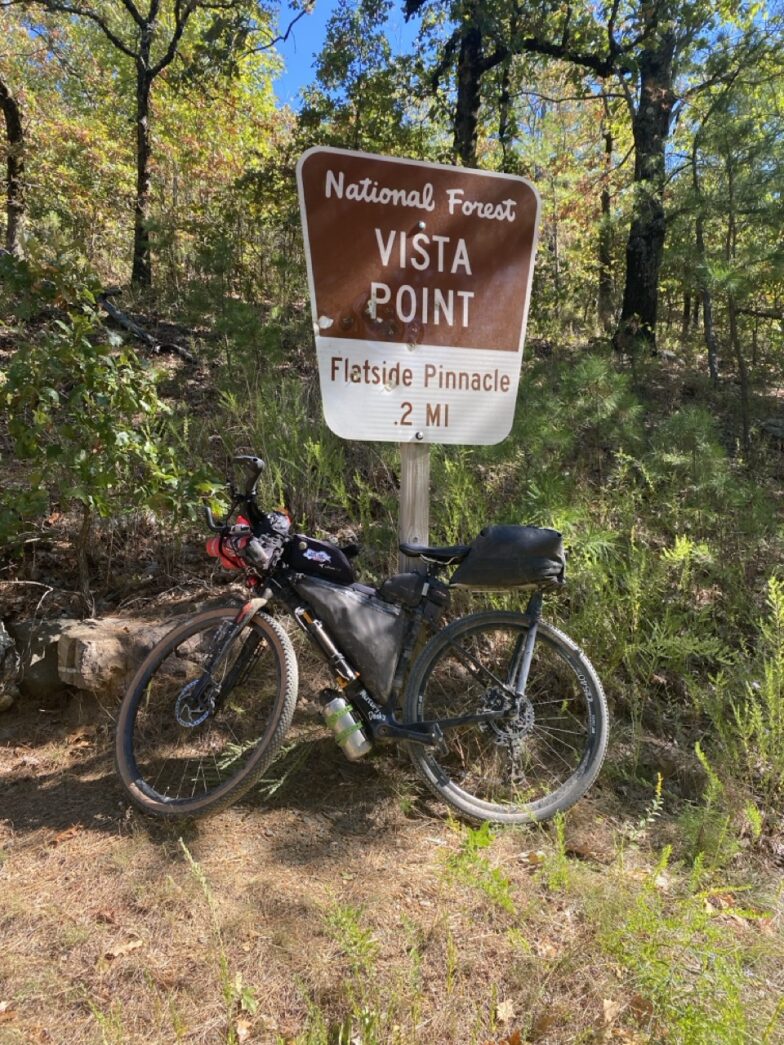

“After every bike race I learn more and more,” said Sykut. “The road gets really dark at night, so a bright light is necessary. I tried to plan out where to stay at night, but sometimes that didn’t work out. My plan for this race was to bike around 100 miles per day and to always stay somewhere where I had access to food and water. Sometimes I slept in a hotel when it was near a town and sometimes I slept on the ground.
“This is not a luxury race. I was definitely roughing it at times.”
Survival plans are necessary. All riders are responsible for their own health and welfare by ensuring that they are sufficiently fit for the 1,000-mile grind. The race administrators encourage good sportsmanship, environmental consciousness and for those cycling to be ambassadors of the sport. Many of the riders experience what they call “trail angels” – everyday citizens and businesses cheering on the competitors by giving them gifts and words of encouragement. These magic trail folk are vital to the mental health of the cyclists.
“It was a mental challenge to push myself … to get up and ride that early in the morning when it was so cold,” said Sykut. “I told my family to only send me positive texts. Since I was on my own, it was motivating to hear the positive words. It gets lonely at times, but the scenery is beautiful. I definitely think about life a lot out there.”
Finishers of this year’s race received a patch that they can proudly display on their bikes, and of course, bragging rights.
More information on the race is at arkansashighcountry.com.


